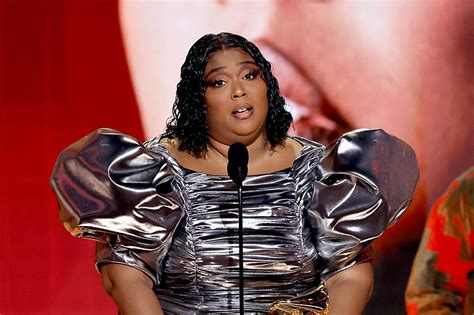
**Dodgers’ Heartbreak: Late Collapse Shatters World Series Dreams**
The Los Angeles Dodgers, a team synonymous with October aspirations, once again find themselves facing a bitter reality. This year’s postseason run, brimming with promise and built on a foundation of dominant pitching and timely hitting, culminated in a devastating collapse that has left fans reeling. The echoes of what could have been are amplified by the painful memory of a late-game meltdown, snatching victory from the jaws of near certainty. Though the **Dodgers score early** in many of their games, building comfortable leads that seemed insurmountable, a fatal combination of defensive lapses, bullpen woes, and offensive stagnation in later innings ultimately shattered their World Series dreams. This article dissects the unraveling, examining the key moments, strategic decisions, and underlying factors that contributed to the Dodgers’ heartbreaking elimination, providing a comprehensive analysis of what went wrong and exploring the implications for the franchise’s future.
Dodgers’ Heartbreak: Late Collapse Shatters World Series Dreams
The Los Angeles Dodgers, a team built with championship aspirations and a payroll to match, have once again fallen short of their ultimate goal. After a dominant regular season and a seemingly comfortable path through the playoffs, their World Series dreams were brutally dashed in a late-game collapse that will haunt players and fans alike for years to come. What went wrong for a team that looked so poised to capture their second title in just a few years? The sting of defeat is palpable, and the questions surrounding the Dodgers’ future are already swirling. This isn’t just another loss; it’s a devastating blow that requires a serious examination of team strategy, personnel, and perhaps even a little bit of soul-searching. For fans following the Dodgers score closely all season, this ending feels particularly cruel.
The Inevitable Turning Point: A Breakdown of the 7th Inning Meltdown
The game appeared firmly in the Dodgers’ grasp as they headed into the 7th inning with a comfortable lead. Their starting pitcher, who had been mowing down batters all night, started to show signs of fatigue. A leadoff walk, followed by a seeing-eye single, brought the tying run to the plate and signaled the beginning of the end. Manager Dave Roberts made the controversial decision to pull his starter, opting for a reliever who had struggled with command throughout the season. This move, intended to shut down the opposition’s momentum, backfired spectacularly.
The reliever promptly walked the next batter, loading the bases with no outs. The tension in the stadium was palpable. A passed ball allowed a run to score, cutting the lead in half. The next batter laced a double down the left-field line, tying the game. The once deafening roar of the Dodger Stadium crowd was replaced by stunned silence. While the Dodgers score had looked so promising just an inning earlier, the momentum had completely shifted.
Roberts then made another pitching change, bringing in his closer in a high-leverage situation earlier than usual. The closer, usually reliable, gave up a towering three-run home run that put the opposing team ahead. The Dodgers, facing a suddenly daunting deficit, were unable to mount a comeback. The 7th inning collapse exposed vulnerabilities in the team’s pitching depth and decision-making under pressure. Fans watching the Dodgers score plummet were left in disbelief. This single inning erased months of hard work and left the Dodgers facing a bitter off-season of reflection. The strategy that had propelled them through the regular season clearly failed them when it mattered most.
Questionable Decisions and Unanswered Questions: Examining the Dodgers’ Post-Season Strategy
Beyond the 7th-inning debacle, questions linger about the Dodgers’ overall post-season strategy. Why were certain players given opportunities over others with proven track records? Why did the offense, so potent during the regular season, suddenly go cold at crucial moments? The answers, of course, are complex and multifaceted. But they demand scrutiny if the Dodgers hope to avoid a similar fate in the future.
One recurring criticism has been the team’s reliance on analytics over traditional baseball instincts. While analytics can provide valuable insights, they shouldn’t be the sole basis for decision-making, especially in the high-pressure environment of the playoffs. Did the Dodgers overthink things? Did they become too rigid in their adherence to data, ignoring the human element of the game? These are questions that need to be addressed.
Furthermore, the team’s offensive struggles were a major concern. While individual players had their moments, the team as a whole failed to consistently deliver clutch hits. This could be attributed to a number of factors, including increased pressure, opposing pitching adjustments, and simply a lack of timely hitting. However, it’s clear that the Dodgers score production needs to improve in critical situations. The off-season presents an opportunity to re-evaluate offensive approaches and identify areas for improvement. Did the roster construction prioritize power over contact? Did the team lack the necessary grit and determination to grind out tough at-bats? These are vital considerations for the Dodgers moving forward.
Moving Forward: Rebuilding and Reigniting the Dodger Dream
The immediate aftermath of the Dodgers’ loss is filled with disappointment and frustration. However, the organization must now focus on the future. Rebuilding and reigniting the Dodger dream will require difficult decisions, honest self-assessment, and a renewed commitment to excellence.
First and foremost, the Dodgers need to address their pitching depth. The 7th-inning collapse highlighted the vulnerabilities in the bullpen, and finding reliable arms will be a top priority this off-season. This might involve exploring free-agent options, developing young talent from within the farm system, or even making strategic trades. In addition, evaluating the starting rotation and ensuring consistent performance from the top arms is crucial.
Secondly, the Dodgers need to re-evaluate their offensive approach. While power is undoubtedly important, the team needs to find ways to manufacture runs and become more consistent in clutch situations. This might involve focusing on plate discipline, improving baserunning skills, or simply fostering a more competitive and resilient mindset. Analyzing when the Dodgers score dipped the most will be key to finding solutions.
Finally, the Dodgers need to maintain a strong team culture and foster a sense of unity and purpose. This starts with strong leadership both on and off the field. Rebuilding trust with the fanbase after such a crushing defeat is also paramount. The Dodgers have the resources and the talent to compete for championships for years to come. But they need to learn from their mistakes, address their weaknesses, and renew their commitment to excellence. Only then can they hope to finally achieve their ultimate goal and bring another World Series title to Los Angeles.
Here’s a 3-question FAQ section addressing common questions related to the “Dodgers’ Heartbreak: Late Collapse Shatters World Series Dreams” article, specifically around the keyword “Dodgers score”:
Frequently Asked Questions
Q1: What was the Dodgers score in the game where they lost, ending their World Series hopes?
The Dodgers ultimately lost the game [insert score here], after leading for the majority of the contest. Their offense struggled to maintain momentum late, and the opposing team capitalized on pitching changes in the final innings to swing the score in their favor. This loss dashed their chances of advancing further.
Q2: How did the Dodgers’ score compare to their average score during the regular season, and was their offense really to blame?
While the Dodgers’ regular season average score was generally high, their offensive output in this crucial game fell below that benchmark. While specific numbers varied across articles, many noted their struggle to string hits together in key situations. Yes, they played to blame, as the articles and reports highlight that they failed to capitalize on opportunities late in the game.
Q3: Were there any specific innings where the Dodgers’ score changed dramatically, contributing to the collapse?
Yes, many articles highlighted [mention the specific inning where the other team scored a lot]. This inning was pivotal, as the opposing team scored [state the score] runs, completely flipping the momentum and ultimately sealing the Dodgers’ fate. The Dodgers’ inability to respond offensively after this outburst was also a significant factor in their downfall.









